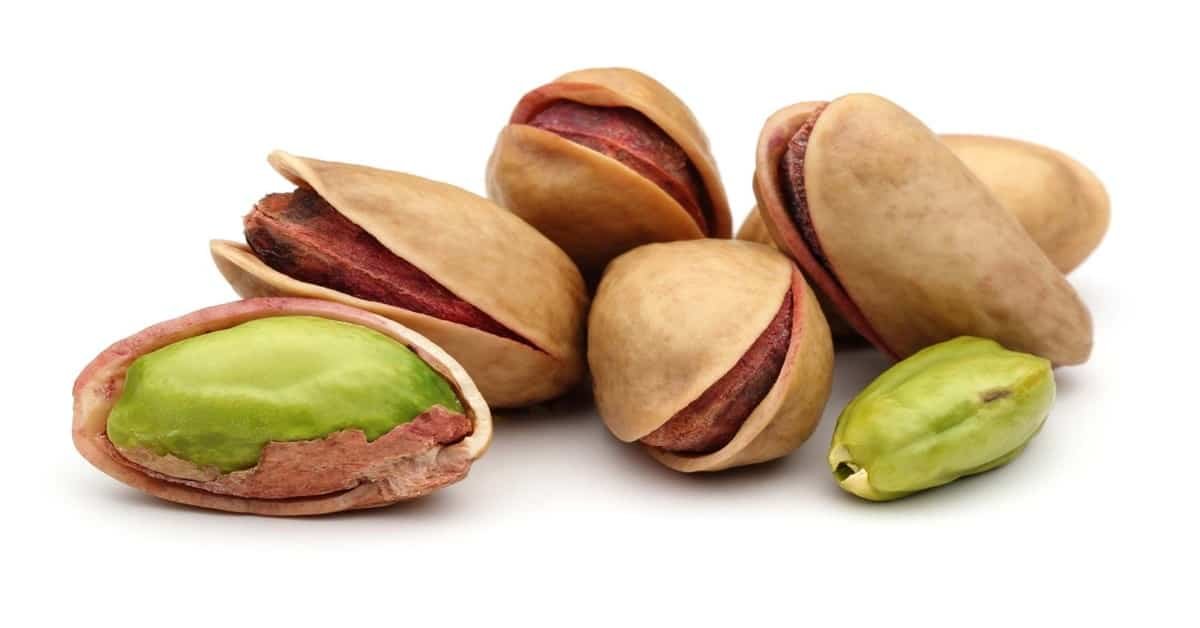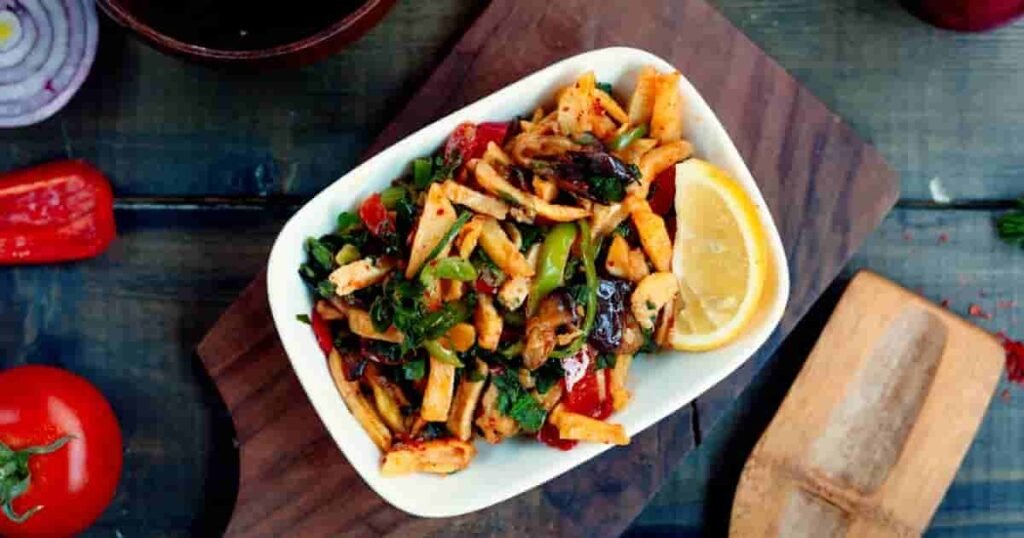Pistachios (Pistacia vera) are not only a popular snack but also a nutrient-rich nut known for their distinctive flavor and vibrant green hue. Native to the Middle East and Central Asia, pistachios are often enjoyed both raw and roasted, making them a versatile ingredient in various dishes. Below, we will explore the nutritional profile of pistachios and delve into their numerous health benefits.
Nutritional Profile of Pistachios (per 100 grams)
Here’s a breakdown of the nutritional content of raw pistachios:
- Calories: 562
- Water: 4%
Macronutrients:
- Carbohydrates: 28.97 g
- Sugars: 7.66 g
- Dietary Fiber: 10.6 g
- Protein: 20.64 g
- Fat: 45.32 g
- Saturated Fat: 5.56 g
- Monounsaturated Fat: 23.3 g
- Polyunsaturated Fat: 13.57 g
Vitamins:
- Vitamin B6: 1.7 mg (about 85% of the Daily Value)
- Vitamin E: 2.3 mg (about 15% of the Daily Value)
- Thiamin (B1): 0.87 mg (about 73% of the Daily Value)
- Folate (B9): 51 µg (about 13% of the Daily Value)
Minerals:
- Copper: 1.2 mg (about 60% of the Daily Value)
- Manganese: 1.2 mg (about 60% of the Daily Value)
- Magnesium: 121 mg (about 30% of the Daily Value)
- Phosphorus: 468 mg (about 67% of the Daily Value)
- Potassium: 1025 mg (about 22% of the Daily Value)
- Zinc: 2.2 mg (about 20% of the Daily Value)
- Iron: 4.03 mg (about 22% of the Daily Value)
Health Benefits of Pistachios
- Nutrient-Dense Food:
- Pistachios are packed with essential nutrients, including protein, healthy fats, vitamins, and minerals. A relatively small serving provides substantial nutrition, making them an excellent choice for a healthy snack.
- Heart Health:
- The heart-healthy monounsaturated and polyunsaturated fats in pistachios can help lower LDL (bad) cholesterol levels and promote HDL (good) cholesterol. Their antioxidant content, including vitamin E, can also contribute to heart health by reducing inflammation and oxidative stress.
- Weight Management:
- Despite being relatively high in calories, studies have shown that pistachios may aid in weight management. The fiber and protein content promote satiety, reducing overall calorie consumption. Their unique nature of being shelled also encourages mindful eating, as it takes longer to eat them compared to other snacks.
- Blood Sugar Control:
- Pistachios have a low glycemic index, making them a suitable snack for individuals with diabetes. The combination of healthy fats, fiber, and protein may help stabilize blood sugar levels, preventing spikes after meals.
- Supports Digestive Health:
- The dietary fiber in pistachios supports digestive health by promoting regular bowel movements and preventing constipation. A healthy gut microbiome is also supported by fiber, which can enhance overall digestive function.
- Improves Eye Health:
- Pistachios contain antioxidants like lutein and zeaxanthin, which are important for eye health. These compounds help filter harmful blue light and protect the retina from oxidative damage, potentially lowering the risk of age-related macular degeneration and cataracts.
- Boosts Immune Function:
- The vitamins and minerals found in pistachios, such as vitamin E and zinc, play a crucial role in enhancing the immune response. A strong immune system is essential for combating infections and maintaining overall health.
- Supports Healthy Skin:
- The antioxidants in pistachios, including vitamin E, can help protect the skin from oxidative damage caused by UV exposure and pollution. Regular consumption may contribute to healthier, more radiant skin.
- Enhances Brain Health:
- The healthy fats, vitamin B6, and antioxidants in pistachios support brain health by promoting cognitive function and reducing the risk of neurodegenerative diseases. Adequate magnesium levels also contribute to improved mood and anxiety regulation.
- Anti-Inflammatory Properties:
- Pistachios have been shown to possess anti-inflammatory effects. The presence of antioxidants and healthy fats can help reduce inflammation in the body, which is linked to a variety of chronic diseases.
- Culinary Versatility:
- Pistachios can be enjoyed in a multitude of ways—raw, roasted, or ground into flour for baking. They can be sprinkled on salads and yogurt, incorporated into desserts, or blended into smoothies, providing both flavor and nutrition.
- May Help Lower Blood Pressure:
- Regular consumption of pistachios may help in managing blood pressure due to their potassium content, which is known to support cardiovascular health by balancing out the effects of sodium.
Conclusion
Pistachios are a nutrient-rich and versatile nut that offers numerous health benefits. Their impressive profile of healthy fats, protein, vitamins, and minerals contribute to heart health, weight management, digestive health, and overall well-being.
Incorporating pistachios into your diet can be both delicious and simple, whether as a raw snack, topping for salads, or as part of prepared dishes.


